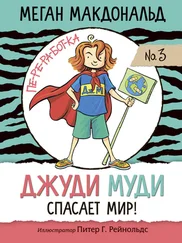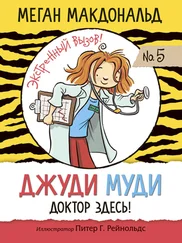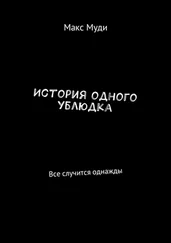‘No, nothing like that. I guess what I’m saying is that things like that must happen all the time but no-one’s interested. As soon as it makes the news, though, people start to report it and before you know it you’ve got dogs biting kids on every street corner.’
‘Not sure if I agree with you,’ she says quietly. ‘Still not even sure I know what you’re talking about. There’s never been anything on this scale before…’
‘I think that these idiots,’ I explain, pointing at the TV, ‘are doing more harm than good. By giving these people a label and giving them airtime they’re glorifying whatever it is that’s happening and blowing it out of all proportion. People are seeing the violence and the glory and rebellion on TV and they’re thinking, I’ll have some of that.’
‘Bullshit. You’re starting to sound like Dad.’
‘It’s not bullshit. Remember those riots last summer?’ I ask, luckily managing to think of another example to try and strengthen my tenuous argument. About eight months ago there was a string of race-motivated disturbances in a few major cities, ours included. Lizzie nods her head.
‘What about them?’
‘Same thing again. Someone started a little bit of trouble out of the way in some back-street somewhere. The media got hold of it and the problem was made to look a hundred times worse than it ever was. It was the way they reported it that made it spread and maybe that’s what’s happening now. There’s a genuine problem somewhere that gets reported and before you know it you’ve got mobs in every city starting trouble using whatever it was that caused the very first fight to kick off as an excuse to get involved.’
‘And do you really believe that?’
I stay quiet. I don’t honestly know what I believe.
‘I think you’re talking crap,’ she snaps. ‘None of what you’ve said explains why I watched a perfectly healthy and normal eleven year-old boy beat the hell out of the headteacher this morning, does it?’
I still stay quiet. I’m relieved when, at long last, something different happens on the news channel. The usual presenters behind their expensive-looking desk have suddenly disappeared and we’re now watching a round table discussion between four people who are probably all politicians or experts in some field or other. They’ve already been talking for a couple of minutes so we’ve missed the introductions.
‘What are they going to be able to tell us?’ I grumble. ‘How can these people be experts if no-one knows what’s happening yet?’
‘Just shut up so we can listen,’ Lizzie sighs.
I can’t help being sceptical. The whole set-up reminds me of the start of that film ‘Dawn of the Dead’ where the views of another so-called expert are ripped apart by a non-believing TV presenter. I know we’re not dealing with a zombie apocalypse here but the way these people are talking to each other makes it feel eerily similar. No-one’s backing up what they say with any facts. No-one has anything to offer other than half-baked theories and ideas. No-one seems to believe what anyone else is saying.
‘The police force is already operating at full stretch and our hospitals are struggling to cope with the increase in injuries,’ a grey-haired lady is saying. ‘The situation must be brought under control soon or we will not have the capacity to react. If this situation continues indefinitely and at the rate of increase we’re presently seeing we’ll be in danger of reaching saturation point where we simply will not be able to deal with what’s happening.’
‘But what is happening?’ someone finally asks. It’s a middle-aged man. I think he’s a doctor. Not sure if he’s a medic or a shrink. ‘Surely our priority must be to identify the cause and resolve that first.’
‘I think with this situation the cause and the effect are one and the same,’ a small, balding man (who, I believe, is a fairly senior politician) says. ‘People are reacting to what they see on the streets, and their reactions are making the situation appear far worse than it actually is.’
‘See,’ I say, nudging Liz.
‘Shh…’ she hisses.
‘Do you seriously believe that?’ the other man challenges. ‘Do you really believe that any of this is happening purely as a result of the violence we’ve already seen?’
‘The violence is a by-product,’ the grey-haired lady says.
‘The violence is part and parcel of the problem,’ the politician argues. ‘The violence is the problem. Once we’ve restored order we can start to…’
‘The violence is a by-product,’ the grey-haired lady says again, annoyed that she’s been interrupted. ‘You’re right in as far as there is a huge element of copycat violence, but the violence is not the cause. There’s an underlying reason for what’s happening which needs to be identified before…’
‘There’s no evidence to suggest that’s the case,’ the politician says quickly.
‘There’s no published evidence to suggest that’s the case,’ the middle-aged man snaps, ‘but how much unpublished information is being withheld? This is unprecedented. With an escalation in trouble of this scale there has to be an identifiable cause, doesn’t there? For this to be happening independently in so many different geographical regions there has to be an identifiable cause.’
‘If you look at what we’ve seen over the last few days,’ the politician says, shaking his head, ‘there has been a steady increase in the recorded levels of violence around major cities where there are high population levels. This is wholly expected. With situations like this the more people who are concentrated in a particular geographic area, the more likely it is that trouble will develop there…’
I stop listening. I sense that this bureaucrat is launching into some pre-arranged spiel in which he’ll no doubt deny all cover-ups and hidden agendas. This sounds like more bullshit. The other people taking part in the debate challenge him but, although he squirms and struggles to keep control, he ultimately remains tight-lipped. I get the feeling that this programme might have been arranged as a public relations exercise but it’s failing miserably. The politician’s unease and the way he’s blatantly avoiding the questions people are putting to him means one of two things. Either the government knows full well what’s happening and is simply choosing not to tell the public, or the authorities genuinely don’t have a clue. Both alternatives are equally frightening.
Twenty minutes more of the news channel and my eyes are starting to close. The debate is over and the headlines are back on. They say that the military may be drafted in to help maintain law and order if the police do become over-stretched as the grey-haired panellist suggested in the debate earlier. They also say that the problem is largely limited to major cities and there are, as yet, no reports of it spreading to other countries. Most worryingly of all, there’s talk of an after-dark curfew and other restrictions being introduced to keep people off the streets and out of each other’s faces.
It’s what isn’t being said that bothers me. I’m just concerned that no-one seems to have a clue what’s going on.
TUESDAY
vi
Jeremy Pearson felt like he was about to be sick. He’d been okay when he’d been prepped for the operation, but now he was actually lying on the table in the operating theatre with people crowding around him and machines beeping and buzzing and that huge round light hanging over him he was beginning to feel nauseous and faint. I should have gone for the general anaesthetic not a local, he thought to himself as Dr Panesar the surgeon walked towards him. I’m paying enough for this operation as it is, a general anaesthetic wouldn’t have cost that much more…
Читать дальше

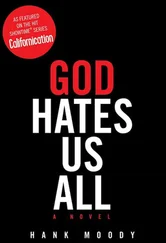


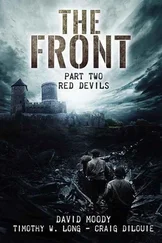


![Кей Муди - Двор ядовитых шипов [litres]](/books/430220/kej-mudi-dvor-yadovityh-shipov-litres-thumb.webp)

